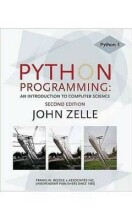Sources Of Law
18 important questions on Sources Of Law
Name some of the Primary articles in the Constitution.
- Right to be treated equally.
- Right to express freely ones convictions and opinions.
- Right to assembly peacefully.
- Right to form Associations and Unions.
- Right to private property
- Right to Life
- Right to a good name
- Freedom of expression
Three elements for an offer to be effective:
b. the terms of the offer must be reasonably certain, or definite
c. it must be communicated to the offeree
Unenumerated Rights - Not expressly provided for but are interpreted by the courts.
Right to marital privacy,
Right to communication
Right to marry
Right to fair procedures
Right to litigate
- Higher grades + faster learning
- Never study anything twice
- 100% sure, 100% understanding
Agreements to Agree: Traditional vs. Modern View
Modern- agreements to agree may be enforceable contracts if it is clear that the parties intended to be bound by the agreements
Court System in Ireland
Circuit Court
High Court
Court of Appeal
Supreme of Court - deals appeals from High Court
What are the 2 methods for terminating offers?
b. Operation of Law
3. Legislation or Statue Law
All Bills require the presidents signature, he may refer any bill to the Supreme Court for a decision if concerned the bill is repugnant to the Constitution.
How can offers be terminated by Action of the Parties? (3 ways)
Rejection- when the offeree rejects, either by words or conduct
Counteroffer- a rejection, by the offeree, of the original offer and the simultaneous making of a new offer
Termination by Operation of Law (4)
b. Destruction of the subject matter (cell phone, house)- when it's destroyed before acceptance
c. Death or Incompetence- when the offeror or offeree dies or becomes legally incapacitated
d. Illegality- when a statute or court decision makes an offer illegal
5. Individual and Collective Labour Law.
What are the three necessary elements for an effective acceptance?
b. voluntary assent
c. must be unequivocal
Who can accept an offer?
Can silence constitute acceptance?
Exception- unless the offeree has a duty to speak
Communication of Acceptance: Bilateral vs. Unilateral
Unilateral- communication of acceptance is not necessary because it's usually evident
What is the timeframe for accepting an offer?
Substitute Method of Acceptance
What contractual provisions should an online offer include? (7)
b. Payment- how payment for the goods must be made
c. Return Policy- statement of the seller's refund and return policies
d. Disclaimer- disclaimers of liability for certain uses of the goods
e. Limitation on Remedies- provision specifying the remedies available to the buyer if the goods are found to be defective
f. Privacy Policy- a statement indicating how the seller will use the information gathered about the buyer
g. Dispute Resolution- provision relating to a settlement, such as an arbitration clause
The Uniform Electronic Transactions Act (UETA)
The question on the page originate from the summary of the following study material:
- A unique study and practice tool
- Never study anything twice again
- Get the grades you hope for
- 100% sure, 100% understanding
































